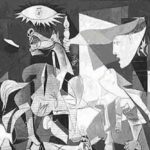When literature saved Pirandello: his wife’s illness and “Il fu Mattia Pascal”
1903: Luigi Pirandello lost his family due to an accident. The writer’s wife accused a breakdown from which she would never recover. Poverty and loneliness seemed to prevail in his life. On those nights he spent his time caring for his wife, his first masterpiece came to light and with it a new hope for the future
In transposing a thought into words, a magical and inexplicable mechanism often helps an author. Whether it is a autobiographical work or not, each text resembles a confession and includes an inevitable dose of personal experience. It may happen that the author follows this peculiarity, and then their characters will share dramas and uncertainties with them, without this mechanism necessarily being applied on purpose. On the other hand, writing is a real soul therapy, an opportunity to face what destroys us and to transform it into a driving force towards rebirth. This dynamic is present in the literary production of every talented author, but in someone more than in others. The Sicilian writer Luigi Pirandello, for example, found himself at a crossroads decisive for his career and for his life: either letting himself go to despair or finding a path that nobody would have considered possible. He chose the second option.
It was 1903. Pirandello’s wife, the rich Maria Antonietta Portulano, suffered a sudden and irreversible nervous breakdown. She and her husband had moved to Rome and the woman suffered the detachment from her loved ones left in Sicily. Since she had been already unstable for some time, this coup de grace devastated her and her married life. Why did she collapse? Because of a serious flooding to the sulfur mine owned by her father, who was the main and most conspicuous source of economic support for the family. Not only did the accident reduce them to poverty, forcing Pirandello to perform multiple tasks to ensure the survival of the family, but it also was for a suffered and decisive stage in the writer’s life. In fact, he was a loving husband and refused to separate from his sick wife for a long time, caring for her until 1919, when her admission to a specialized clinic became inevitable. During these sad vicissitudes, however, Pirandello was not alone: to keep him company from the very first nights of his wife’s illness, was the character that would have guaranteed the writer his first real success: Mattia Pascal. The novel was published the following year, in 1904, and beyond its undisputed literary value, its writing meant much more than an economic redemption for Pirandello. In his own words, writing had allowed his pain to diminish, and his concern for their uncertain future was accompanied by a strong commitment in the present. His loneliness turned into a flourishing dialogue with himself, as if from the depths of his heart he had saved the fragments of a genius that was still intact.
It is no coincidence that there is all of Pirandello in this incredible novel entitled Il fu Mattia Pascal: you can see it in the oppression of the protagonist within his family nucleus, in the split of an identity he wishes to recompose, in a desperate attempt to make ends meet and start all over again. And above all, it becomes clear when Mattia goes back home at the end of the story: his character is unhappy and at the same time more mature and more aware of life. It would be excessive to define the novel a full-fledged biography, just as it would be wrong (although this has been done) to state that Pirandello’s interest in the functioning of the human psyche derives from the years he spent at his wife’s bedside. And yet, there is no doubt that these personal stimuli have been fundamental to the success of his work. In creating fiction and intertwining it with reality, the author analyzed his own choices, weighed his desires and evaluated every possibility. He instilled courage into himself and sought satisfactory answers, mirroring himself in a character who, just like him, was deeply challenged. Guided by the feeble light that remained on in the anxious nights spent next to his wife, Pirandello did not run away from his life and problems: on the contrary, he faced them armed with a pen and with his imagination. For this reason, Il fu Mattia Pascal was not only an economic success, but also and above all an existential turning point. It was probably the answer that Pirandello was looking for in those desperate nights with his wife, the confirmation that literature can save even when you have fallen into a bottomless pit. Moreover, the writer himself once stated: «Life is either written or lived. I have never lived it unless I wrote it down».
Translated by Eva Luna Mascolino



